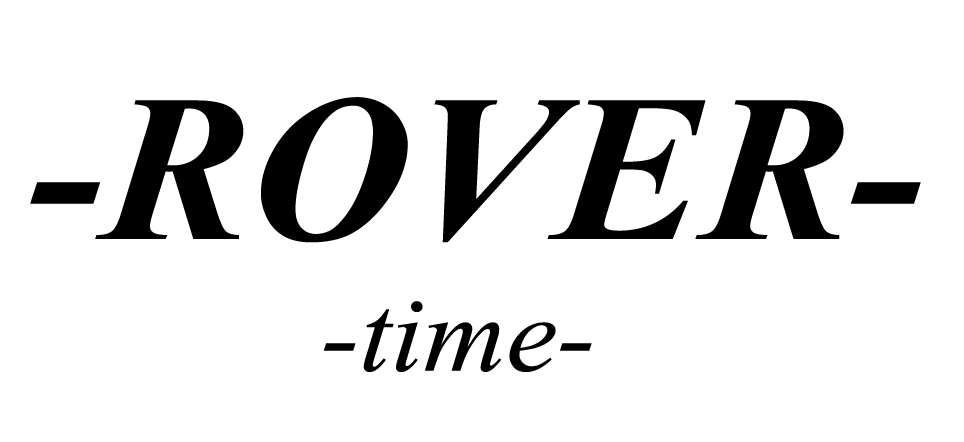AI in video recognition: Assessing video footage with a machine learning algorithm ICT Group
Racial Discrimination in Face Recognition Technology Science in the News
It would be very useful indeed if a camera would be able to tell the difference between a round steak and a pork rib and could manage the follow-up procedures automatically. With image recognition, a machine can identify objects in a scene just as easily as a human can — and often faster and at a more granular level. And once a model has learned to recognize particular elements, it can be programmed to perform a particular action in response, making it an integral part of many tech sectors. Image recognition is a subset of computer vision, which is a broader field of artificial intelligence that trains computers to see, interpret and understand visual information from images or videos. The first and second lines of code above imports the ImageAI’s CustomImageClassification class for predicting and recognizing images with trained models and the python os class.
Many of the most dynamic social media and content sharing communities exist because of reliable and authentic streams of user-generated content (USG). But when a high volume of USG is a necessary component of a given platform or community, a particular challenge presents itself—verifying and moderating that content to ensure it adheres to platform/community standards. Even the smallest network architecture discussed thus far still has millions of parameters and occupies dozens or hundreds of megabytes of space.
Data Integration
R-CNN belongs to a family of machine learning models for computer vision, specifically object detection, whereas YOLO is a well-known real-time object detection algorithm. Face recognition remains a powerful technology with significant implications in both criminal justice and everyday life. Less contentious applications of face recognition exist, for example, assistive technology supporting people with visual impairments. While we focus specifically on face recognition in this article, the discussed problems and solutions are part of broader efforts to identify and eliminate inequalities in the fields of artificial intelligence and machine learning. So the next time we unlock our phone, let’s remember that addressing racial bias within face recognition and its applications is necessary to make these algorithms equitable and even more impactful.
Biden wants to move fast on AI safeguards and will sign an executive order to address his concerns – ABC News
Biden wants to move fast on AI safeguards and will sign an executive order to address his concerns.
Posted: Mon, 30 Oct 2023 09:45:32 GMT [source]
At about the same time, the first computer image scanning technology was developed, enabling computers to digitize and acquire images. Another milestone was reached in 1963 when computers were able to transform two-dimensional images into three-dimensional forms. In the 1960s, AI emerged as an academic field of study, and it also marked the beginning of the AI quest to solve the human vision problem. It runs analyses of data over and over until it discerns distinctions and ultimately recognize images. For example, to train a computer to recognize automobile tires, it needs to be fed vast quantities of tire images and tire-related items to learn the differences and recognize a tire, especially one with no defects.
Tips to Improve Stadium and Large Venue Security
Data analysis, accurate predictions, finding invisible patterns, and object recognition are some of the features modern AI solutions are embedded with. Let’s analyze the ability of AI to recognize objects and ways to use this technology in healthcare. This section compares training a softmax image classifier explicitly as in the previous experiments and training an image retrieval system, which is subsequently used for nearest neighbor classification.
- Previously, image recognition, also known as computer vision, was limited to recognizing discrete objects in an image.
- Smart security systems use face recognition systems to allow or deny entry to people.
- AI models rely on deep learning to be able to learn from experience, similar to humans with biological neural networks.
Any irregularities (or any images that don’t include a pizza) are then passed along for human review. To see just how small you can make these networks with good results, check out this post on creating a tiny image recognition model for mobile devices. A distinction is made between a data set to Model training and the data that will have to be processed live when the model is placed in production. As training data, you can choose to upload video or photo files in various formats (AVI, MP4, JPEG,…). When video files are used, the Trendskout AI software will automatically split them into separate frames, which facilitates labelling in a next step. Crops can be monitored for their general condition and by, for example, mapping which insects are found on crops and in what concentration.
Business cases just around the corner
Copy the artificial intelligence model you downloaded above or the one you trained that achieved the highest accuracy and paste it to the folder where your new python file (e.g FirstCustomImageRecognition.py ) . Also copy the JSON file you downloaded or was generated by your training and paste it to the same folder as your new python file. Copy a sample image(s) of any professional that fall into the categories in the IdenProf dataset to the same folder as your new python file. Machine learning opened the way for computers to learn to recognize almost any scene or object we want them too.
- Check out our artificial intelligence section to learn more about the world of machine learning.
- If you show a child a number or letter enough times, it’ll learn to recognize that number.
- More often, it’s a question of whether an object is present or absent, what class of objects it belongs to, what color it is, is the object still or on the move, etc.
- More and more use is also being made of drone or even satellite images that chart large areas of crops.
The most significant difference between image recognition & data analysis is the level of analysis. In image recognition, the model is concerned only with detecting the object or patterns within the image. On the flip side, a computer vision model not only aims at detecting the object, but it also tries to understand the content of the image, and identify the spatial arrangement. The main aim of using Image Recognition is to classify images on the basis of pre-defined labels & categories after analyzing & interpreting the visual content to learn meaningful information.
Speech Data Annotation: Speech Recognition Technology in Self-Driving Cars
And the complexities of structure and architecture of neural network depends on the types of information required. Image recognition is more complicated than you think as there are various things involved like deep learning, neural networks, and sophisticated image recognition algorithms to make this possible for machines. Many organizations don’t have the resources to fund computer vision labs and create deep learning models and neural networks. They may also lack the computing power required to process huge sets of visual data. Companies such as IBM are helping by offering computer vision software development services. These services deliver pre-built learning models available from the cloud — and also ease demand on computing resources.
The next step is separating images into target classes with various degrees of confidence, a so-called ‘confidence score’. The sensitivity of the model — a minimum threshold of similarity required to put a certain label on the image — can be adjusted depending on how many false positives are found in the output. The common problems and challenges that a face recognition system can have while detecting and recognizing faces are discussed in the following paragraphs. Fluent.ai’s unique speech-to-intent technology provides fully offline, noise robust speech recognition that can support any language and accent. Facial recognition software embedded in most modern smartphones is the simplest example of this technology in action.
We are developing technologies that can deploy lightweight and realistic solutions while utilizing edge AI, etc. This participation occurs without consent, or even awareness, and is bolstered by a lack of legislative oversight. More disturbingly, however, the current implementation of these technologies involves significant racial bias, particularly against Black Americans. Even if accurate, face recognition empowers a law enforcement system with a long history of racist and anti-activist surveillance and can widen pre-existing inequalities.
The company owns the proprietorship of advanced computer vision technology that can understand images and then turns the visual content into real-time analytics and provides very valuable insights. Once image datasets are available, the next step would be to prepare machines to learn from these images. Freely available frameworks, such as open-source software libraries serve as the starting point for machine training purposes. They provide different types of computer-vision functions, such as emotion and facial recognition, large obstacle detection in vehicles, and medical screening.
The students had to develop an image recognition platform that automatically segmented foreground and background and extracted non-overlapping objects from photos. The project ended in failure and even today, despite undeniable progress, there are still major challenges in image recognition. Nevertheless, this project was seen by many as the official birth of AI-based computer vision as a scientific discipline.

Our intelligent algorithm selects and uses the best performing algorithm from multiple models. These algorithms process the image and extract features, such as edges, textures, and shapes, which are then used to identify the object or feature. Image recognition technology is used in a variety of applications, such as self-driving cars, security systems, and image search engines.
It involves more advanced processing techniques to identify a person’s identity based on feature point extraction, and comparison algorithms. And can be used for applications such as automated attendance systems or security checks. While Face detection is a much simpler process and can be used for applications such as image tagging or altering the angle of a photo based on the face detected. It is the initial step in the face recognition process and is a simpler process that simply identifies a face in an image or video feed.
Read more about https://www.metadialog.com/ here.


